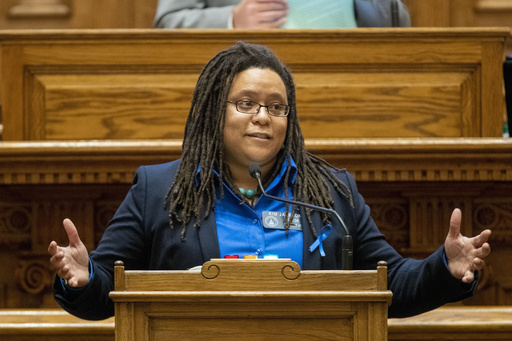ATLANTA — In a recent meeting, a legislative panel in Georgia emphasized the importance of enhancing mental health services, staffing levels, and de-escalation training to tackle the alarming rates of fatalities and neglect within state prisons. The panel has proposed these recommendations to the legislature ahead of its session scheduled for January. Earlier, two months back, the Justice Department indicated a willingness to pursue legal action if state officials do not promptly address violations concerning prisoners’ Eighth Amendment rights, which guard against cruel and unusual punishment. Reports suggest that Georgia’s prison system is headed for another record-high in homicides in 2024, as noted by the Atlanta Journal-Constitution.
State Representative Matt Hatchett, a Republican from Dublin and chair of the House Appropriations Committee, expressed his support for allocating funds aimed at reducing violence and increasing the number of single-cell facilities. However, he disagreed with the report’s suggestion that all prisons should adopt single-cell models.
Another point of contention arose when lawmakers dismissed State Senator Kim Jackson’s proposal for the establishment of an independent oversight committee. Republicans maintained that there is already sufficient oversight provided by existing legislative committees. Jackson countered, asserting that extensive testimony revealed significant deficiencies in oversight of the Department of Corrections and highlighted the public’s feeling of a lack of access to justice and avenues to have their concerns addressed.
Advocates for prison reform pointed out at the panel’s final meeting that Georgia’s prison system is struggling to deliver even basic care to inmates. Testimonies from former prisoners and families of those who died in custody revealed a troubling lack of transparency from prison officials regarding these deaths. Nasir Jahid, who was released two months prior, testified that he witnessed two deaths in custody, including that of Garry Lloyd Gerald Matthews Jr. He recounted how he and others repeatedly called for assistance, but by the time help arrived, the officers did nothing to intervene.
A spokesperson for the corrections department clarified that one of the deaths Jahid referred to was ruled a suicide, while an investigation into Matthews’ death concluded that officers had provided enough support despite being unable to save him due to medical issues.
Heather Hunt shared her experience regarding what she described as an inadequate investigation into her son’s death in a state prison. Similarly, Della Newsome expressed frustration over the scant communication she received regarding her fiancée, Joshua Mark Holliday, who also died while incarcerated. Authorities labeled these deaths as suicides, yet the families maintain doubts about those claims.
While the Georgia Bureau of Investigations is responsible for conducting autopsies in cases of prisoner deaths, it typically does not probe into the circumstances surrounding those incidents. The panel chose not to advocate for the bureau to undertake such investigations in these cases. Corrections Commissioner Tyrone Oliver informed the panel that officers conducting inquiries into deaths receive training similar to that provided to bureau officials and are instructed to keep families or next-of-kin informed.
Additionally, the panel proposed collaborations with private prisons and recommended that the federal government allow state prisons to implement technologies that disrupt cell phone and drone usage. Oliver explained that such devices are often employed by individuals to smuggle contraband into prisons. However, advocates argue that many inmates rely on phones primarily to stay connected with their families due to the limited and costly alternatives available for communication.



